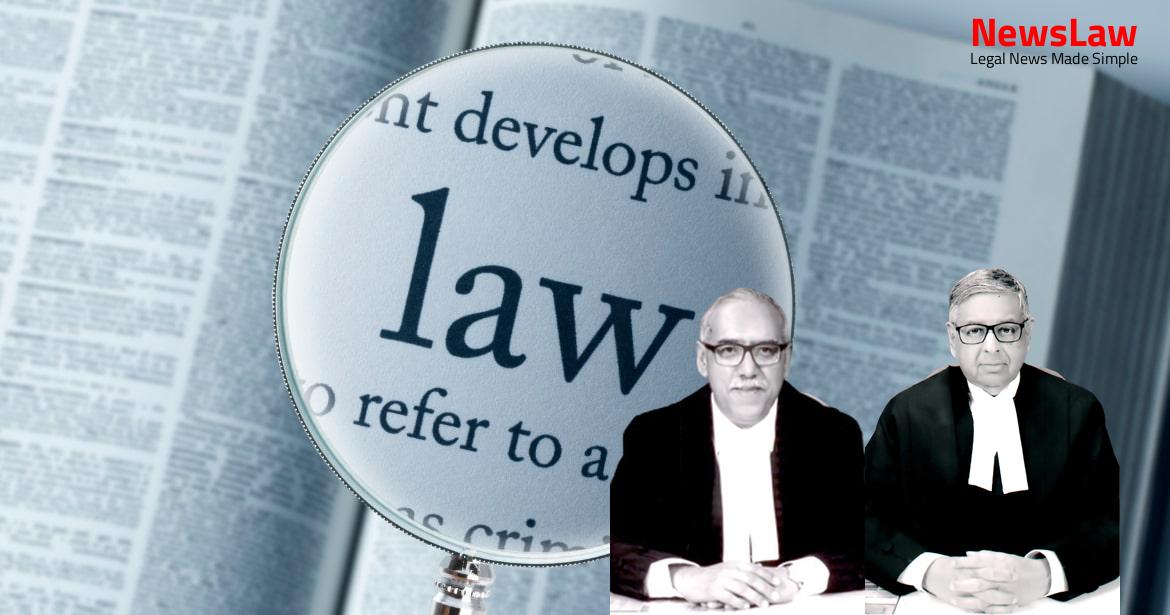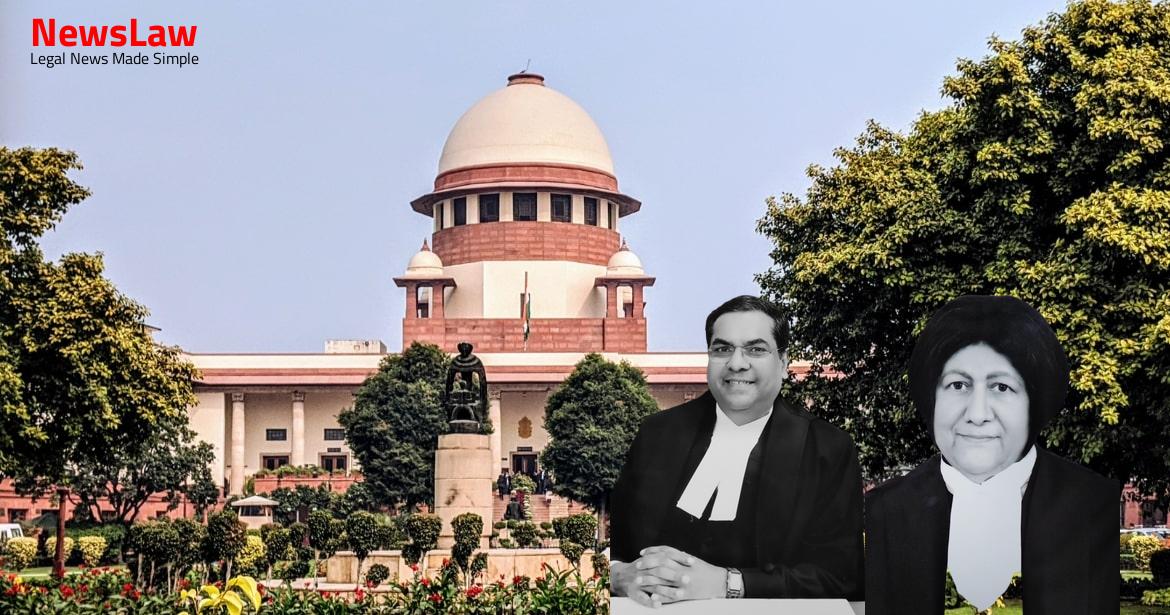A landmark ruling has been made by the Supreme Court regarding a violation of Section 27A under the NDPS Act. The case involved intricate legal considerations and thorough examination of the facts presented. The judgment marks a crucial step in the legal discourse surrounding narcotics offenses. Stay tuned for a detailed analysis of the case and its implications in our blog post.
Analysis
- The accused has been sentenced to 15 years of imprisonment and fined Rs.1,50,000/- for the offence under Section 27A of the Act.
- Section 27A deals with punishment for financing illicit traffic and harbouring offenders.
- The punishment for this offence includes rigorous imprisonment for a minimum of 10 years and a maximum of 20 years, along with a fine ranging from Rs.1 lakh to Rs.2 lakh.
- The court may impose a fine exceeding two lakh rupees for specific reasons to be recorded in the judgment.
- Section 8(c) of the NDPS Act prohibits various operations related to narcotic drugs and psychotropic substances.
- These operations include production, manufacture, possession, sale, purchase, transport, and import/export of such substances, except for medical or scientific purposes as per the Act.
- The cultivation and use of cannabis plant for ganja production are also regulated under this Act.
- Certain exemptions are provided for specific purposes like export of poppy straw for decorative purposes.
- The prosecution’s case is focused on financing and not harboring.
- The co-accused’s statement details how he came into contact with another person in Bombay who instructed him to go to Manglapuram.
- Confession recorded after the appellant’s arrest, lacks corroborative evidence.
- The confession of the co-accused is considered weak evidence and needed corroboration.
- The co-accused’s confession provided a direction for the investigating authorities.
- Accused nos. 2 to 4 have been convicted under NDPS Act, while the present appellant’s evidence is primarily from a co-accused’s statement and his own alleged confession.
- Allegations indicate that heroin was to be delivered to the appellant through intermediaries, but key individuals were not examined in the case.
- Essential ingredient of the offence is financing or harboring activities related to contraband, with virtually no evidence found against the appellant in international smuggling.
- The vehicle carrying heroin was apprehended, leading to the involvement of accused no. 2 to 6 sitting in the car.
- Charges against the appellant were mainly of financing and international smuggling, but lacked evidence to support the claims.
- The issue of whether a statement recorded under Section 67 of the NDPS Act can be considered a confessional statement is being referred to a larger Bench.
- For the current decision, it is assumed that the confession is admissible.
- The court must ensure that the confession is voluntary and free from pressure, and that the accused was informed of their rights before confessing.
- No evidence has been presented to show that the confession was voluntary and free from pressure, or that the accused was informed of their rights.
- Confessions, especially those made in custody, are considered weak evidence and require corroborative evidence.
- The confession of the co-accused, presented as corroborative evidence, holds no value.
- Apart from the confessions of the co-accused and the accused, the prosecution has no evidence linking the appellant to the offense.
- Confessions are admissible but insufficient evidence to convict accused
- Legal admissibility of confession not discussed
- Insufficiency of evidence emphasized
Also Read: Enforcement of Foreign Award: Case of Oscar Investments Limited and RHC Holding Private Limited
Decision
- The accused’s bail bonds are discharged.
- The appeal is found to have force.
- Both the Trial Court and the High Court wrongly convicted the accused.
- The judgments of both Courts below are set aside.
- The appeal is allowed.
- The accused is already on bail.
Also Read: NGOs Substantial Financing Case: Supreme Court’s Judgment on Public Authority Definition
Case Title: MOHAMMED FASRIN Vs. THE STATE REP. BY THE THE INTELLIGENCE OFFICER
Case Number: Crl.A. No.-000296-000296 / 2014



